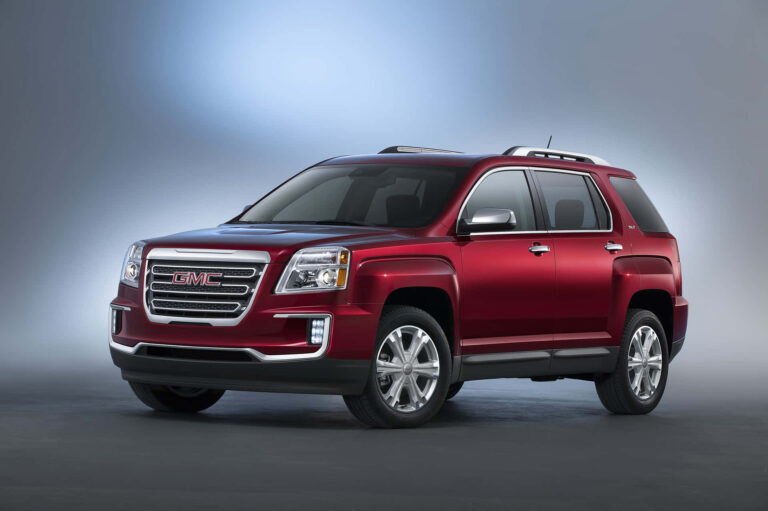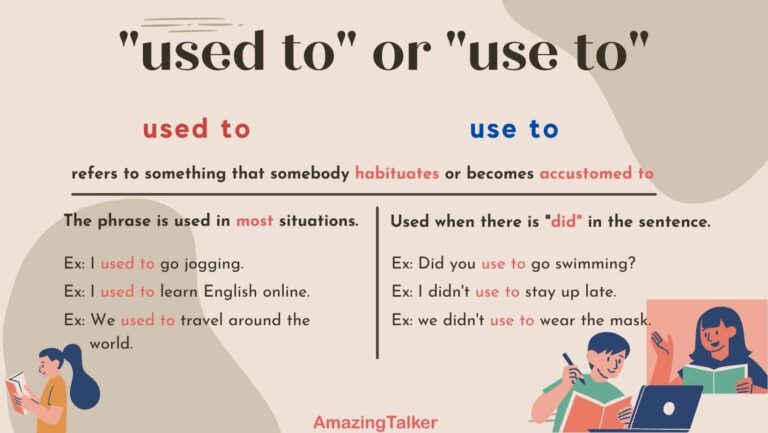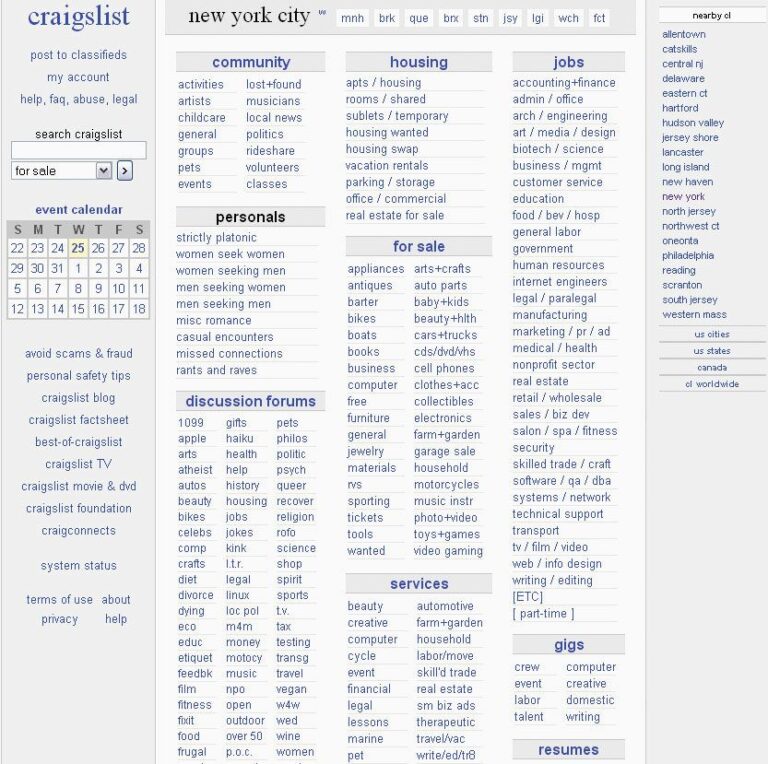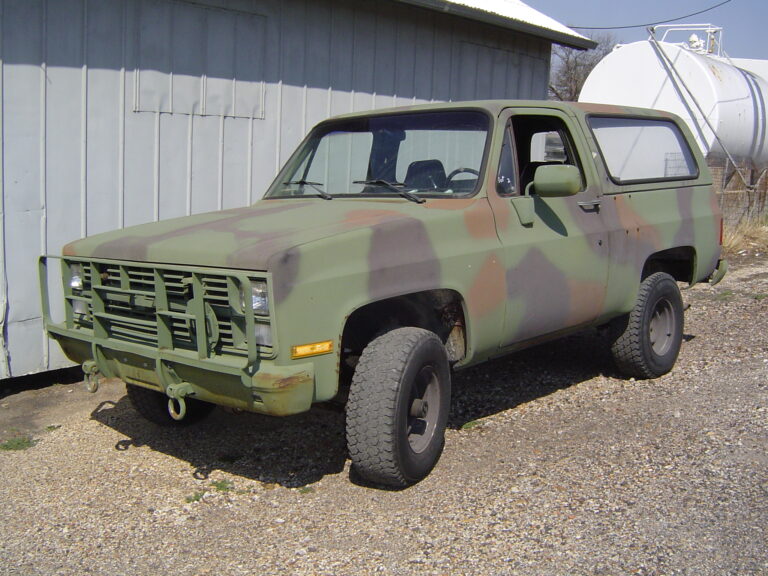1 Ton 4×4 Dually Trucks For Sale: The Ultimate Guide to Heavy-Duty Powerhouses
1 Ton 4×4 Dually Trucks For Sale: The Ultimate Guide to Heavy-Duty Powerhouses cars.truckstrend.com
In the world of trucks, few vehicles command as much respect and capability as the 1-ton 4×4 dually. These colossal machines, often seen hauling massive RVs, fifth-wheel trailers, or traversing rugged job sites, are the undisputed workhorses of the road. If you’re in the market for unparalleled towing power, exceptional stability, and the confidence to conquer any terrain, then a 1-ton 4×4 dually truck is likely on your radar.
This comprehensive guide will delve deep into what makes these trucks so unique, what to consider when purchasing one, and where to find the perfect 1-ton 4×4 dually for your needs. Whether you’re a professional hauler, an avid RVer, or someone who simply demands the absolute best in truck performance, understanding these heavy-duty giants is the first step toward making an informed investment.
1 Ton 4×4 Dually Trucks For Sale: The Ultimate Guide to Heavy-Duty Powerhouses
Understanding the "1 Ton," "4×4," and "Dually" Designations
Before diving into the market, it’s crucial to understand the fundamental characteristics that define these formidable trucks:
-
1 Ton (or 3500/350/F-350): This designation refers to the truck’s Gross Vehicle Weight Rating (GVWR) class, not its actual payload capacity in tons. Historically, these trucks were designed to carry approximately one ton of payload, but modern 1-ton trucks (such as the Ford F-350, Ram 3500, Chevrolet Silverado 3500HD, and GMC Sierra 3500HD) can often carry payloads well over 4,000 to 7,000 pounds, and tow tens of thousands of pounds. They are built with heavier frames, stronger axles, and more robust suspension systems than their half-ton or three-quarter-ton counterparts.
-
4×4 (Four-Wheel Drive): This signifies the truck’s ability to send power to all four wheels, providing superior traction and control in challenging conditions. Whether it’s navigating muddy construction sites, traversing snow-covered roads, or venturing off-road, the 4×4 system ensures you maintain grip where a 2WD truck would falter. This capability is indispensable for those who operate in diverse environments or need to access remote locations.

-
Dually (Dual Rear Wheels): The most visually distinctive feature, a dually truck features two tires on each side of the rear axle, totaling four tires at the back (and six tires overall). This design significantly increases the truck’s stability, particularly when towing heavy loads or in crosswinds. The extra tires distribute weight more effectively, improve traction, reduce tire wear for heavy loads, and provide a critical safety net in case of a rear tire blowout. The wider stance also contributes to a lower center of gravity when loaded, enhancing control.
Combined, these three elements create a vehicle designed for extreme capability, safety, and reliability under the heaviest of demands.
Key Benefits of Owning a 1 Ton 4×4 Dually
The advantages of opting for a 1-ton 4×4 dually are numerous and compelling for specific users:
- Unmatched Towing and Hauling Capacity: This is the primary reason people buy duallies. With their robust frames, powerful diesel or gasoline engines, and multi-wheeled rear axles, these trucks can tow massive fifth-wheel RVs, gooseneck livestock trailers, heavy equipment, and commercial loads that lighter trucks simply cannot handle.
- Superior Stability and Control: The dual rear wheels dramatically improve stability, especially with heavy trailers. This translates to less sway, better handling in crosswinds, and a more confident driving experience, reducing driver fatigue on long hauls.
- Enhanced Safety: The increased tire contact patch provides better braking performance and traction. In the event of a rear tire failure, the remaining tire on that side can often maintain enough support to allow for a safe stop, rather than immediate loss of control.
- All-Terrain Versatility: The combination of 1-ton durability and 4×4 capability means these trucks aren’t limited to paved roads. They can access job sites, ranches, or remote campsites, regardless of adverse weather or challenging terrain.
- Durability and Longevity: Built for heavy-duty work, these trucks are designed to withstand significant stress and abuse. With proper maintenance, they often provide many years and hundreds of thousands of miles of reliable service, retaining strong resale value.
- Ideal for Specific Applications: Perfect for hotshot trucking, large RV owners, agricultural use, heavy construction, and anyone needing maximum utility from their pickup.
Popular Makes and Models
When searching for 1-ton 4×4 dually trucks for sale, you’ll primarily encounter offerings from the "Big Three" American manufacturers, each with its loyal following:
- Ford Super Duty F-350 Dually: Known for its powerful Power Stroke diesel engine options and advanced towing technology. Ford offers a wide range of trim levels, from basic work trucks to luxurious King Ranch and Platinum editions.
- Ram 3500 Dually: Often praised for its segment-leading Cummins diesel engine, high towing capacities, and increasingly refined interiors, even in work-oriented trims. Ram also offers advanced tech features and comfortable ride quality for a heavy-duty truck.
- Chevrolet Silverado 3500HD Dually: Featuring the Duramax diesel engine, known for its reliability and strong performance. GM trucks offer a blend of capability and comfort, with intuitive infotainment systems and practical bed features.
- GMC Sierra 3500HD Dually: The upscale cousin to the Silverado, offering similar mechanicals but with more premium styling, materials, and exclusive features like the MultiPro tailgate.
Each brand offers competitive engine options (both gasoline and diesel), various cab configurations (regular, extended, crew cab), and bed lengths to suit diverse needs.
What to Look For When Buying a 1 Ton 4×4 Dually (Considerations & Practical Advice)
Purchasing a 1-ton 4×4 dually, especially a used one, requires careful consideration. These are significant investments, and a thorough inspection is paramount.
- Intended Use: Clearly define what you’ll use the truck for. This dictates the required towing/payload capacity, engine type, and desired features.
- Condition is Key:
- Frame and Body Rust: Inspect the frame rails, body panels, cab corners, and wheel wells thoroughly, especially in regions that use road salt. Rust can compromise structural integrity.
- Mechanical Inspection: Pay close attention to the engine (look for leaks, listen for unusual noises), transmission (smooth shifts, no slipping), differentials, and transfer case. Check for signs of neglect or abuse.
- Tires: Dually tires are expensive. Ensure all six tires are in good condition, evenly worn, and match.
- Brakes: Check pad thickness, rotor condition, and fluid levels.
- Suspension: Look for worn bushings, shocks, or springs.
- Maintenance Records: This is perhaps the most crucial element for a used heavy-duty truck. A detailed service history indicates how well the truck was cared for, especially for diesel engines which require specific maintenance intervals.
- Engine Type: Diesel vs. Gasoline:
- Diesel: Offers superior torque for heavy towing, better fuel economy when loaded, and often a longer lifespan. However, diesel trucks have higher upfront costs, more expensive maintenance, and fuel can be pricier.
- Gasoline: Lower upfront cost, simpler maintenance, and cheaper fuel. Suitable for occasional heavy towing or lighter daily use, but will consume more fuel under load and have less low-end torque.
- Transmission: Most duallies come with heavy-duty automatic transmissions, which are generally preferred for towing. Ensure it shifts smoothly without hesitation or harshness.
- Axle Ratios: Different axle ratios impact towing performance and fuel economy. A "lower" (numerically higher) ratio like 3.73 or 4.10 provides more torque for towing but sacrifices some fuel economy, while a "higher" (numerically lower) ratio like 3.31 or 3.55 offers better highway mileage.
- Trim Level and Features: Decide on essential features like integrated trailer brakes, towing mirrors, a fifth-wheel/gooseneck prep package, and desired creature comforts.
- Pre-Purchase Inspection (PPI): Never buy a used 1-ton dually without a thorough PPI by an independent, trusted mechanic specializing in heavy-duty trucks. This can uncover hidden issues that could save you thousands down the road.
Where to Find 1 Ton 4×4 Dually Trucks For Sale
The market for these trucks is robust, offering several avenues for your search:
- New Car Dealerships: If your budget allows, buying new ensures the latest technology, full warranty coverage, and customizability.
- Used Car Dealerships: Many dealerships specialize in trucks and commercial vehicles. They offer certified pre-owned options, financing, and often a limited warranty.
- Online Marketplaces: Websites like AutoTrader, Cars.com, CarGurus, eBay Motors, and Facebook Marketplace offer vast selections from both dealerships and private sellers. Use detailed filters for make, model, year, mileage, and features.
- Specialty Truck Sellers: Some businesses focus solely on selling heavy-duty and commercial trucks, often having a deeper inventory and expertise.
- Auctions: Public and commercial auctions (e.g., Ritchie Bros., GovPlanet) can offer opportunities for deals, but often require more expertise in vehicle assessment as sales are typically "as-is."
- Private Sellers: Buying directly from an owner can sometimes yield a better price, but requires more due diligence on your part, as there’s less recourse if issues arise.
When searching online, use keywords like "F350 dually 4×4," "Ram 3500 dually 4×4," "Silverado 3500HD dually 4×4," or "GMC Sierra 3500HD dually 4×4" to narrow your results.
Challenges and Solutions of Dually Ownership
While immensely capable, owning a 1-ton 4×4 dually comes with its own set of considerations:
- Fuel Economy: These trucks are not fuel-efficient, especially with a gasoline engine or when towing. Solution: Factor higher fuel costs into your budget. For regular heavy towing, a diesel often proves more economical over time.
- Maneuverability and Parking: Their sheer size and wide rear end can make navigating tight city streets, parking lots, and drive-thrus challenging. Solution: Practice, use large mirrors, and invest in trucks with parking sensors or 360-degree cameras. Patience is key.
- Tire Costs: Six tires mean higher replacement costs compared to a standard four-tire truck. Solution: Implement regular tire rotations, maintain proper inflation, and shop around for deals when it’s time for new rubber.
- Maintenance Expenses: Heavy-duty components and diesel engines can lead to higher maintenance and repair costs. Solution: Adhere strictly to the manufacturer’s maintenance schedule, budget for routine service, and consider a reputable independent mechanic over dealership service for some repairs.
- Insurance: Due to their higher purchase price and repair costs, insurance premiums can be higher. Solution: Shop around for quotes from multiple insurance providers.
Price Guide: 1 Ton 4×4 Dually Trucks For Sale (Estimated Ranges)
Please note that prices for 1-ton 4×4 dually trucks vary significantly based on make, model, year, mileage, condition, engine type, trim level, features, and geographical location. The table below provides broad estimated ranges and should be used as a general guide only. Always conduct thorough market research for specific models and conditions.
| Vehicle Age/Condition | Estimated Price Range (Low) | Estimated Price Range (High) | Key Considerations |
|---|---|---|---|
| New (2023-2024) | $60,000 | $95,000+ | Base models to fully loaded luxury trims. Price varies heavily by engine (diesel often adds $10k+), 4×4, dually, and specific options. Expect dealer markups in some markets. |
| Late Model Used (2-5 years old) | $45,000 | $75,000 | Typically lower mileage (under 100k miles). Still under factory powertrain warranty for some, depending on original purchase date. Good balance of modern features and depreciation savings. Condition and maintenance records are critical. |
| Mid-Age Used (6-10 years old) | $25,000 | $45,000 | Higher mileage (100k-200k+ miles) is common. More significant wear and tear possible. Thorough mechanical inspection is vital. Excellent value for those needing capability without the new-truck price tag, but be prepared for potential maintenance. |
| Older/High Mileage (10+ years old) | $10,000 | $25,000 | Often 200k+ miles. Prices depend heavily on overall condition, recent major repairs (e.g., engine or transmission rebuild), and rust levels. Best for those with mechanical knowledge or a dedicated budget for potential significant repairs. Great for dedicated work trucks where cosmetics are less important. |
Disclaimer: These are rough estimates. Market conditions, specific configurations (e.g., diesel vs. gas, trim level), and regional demand will cause actual prices to fluctuate. Always verify pricing with current listings and a pre-purchase inspection.
Frequently Asked Questions (FAQ)
Q: What does "1 Ton" really mean for a truck?
A: "1 Ton" is a historical classification referring to the truck’s Gross Vehicle Weight Rating (GVWR) class (typically Class 3). It means the truck is built for heavy-duty applications, capable of carrying far more than one ton of payload and towing significantly heavier loads than lighter duty trucks.
Q: Is a dually hard to drive?
A: While they are larger and wider, duallies are not inherently "hard" to drive. They require more awareness of their dimensions, especially in tight spaces. Parking and navigating narrow areas are the main challenges, but their stability on the open road, especially with a load, makes them feel very secure.
Q: Can I use a 1-ton 4×4 dually as a daily driver?
A: Yes, many people do, especially if they regularly tow or haul. However, their size, lower fuel economy, and higher maintenance costs make them less practical than a smaller vehicle for everyday commuting or errands if you don’t utilize their full capabilities.
Q: Diesel vs. Gas: Which is better for a dually?
A: For consistent, heavy towing or commercial use, diesel engines are generally superior due to their high torque, better fuel economy under load, and longer lifespan. For lighter, occasional towing or if upfront cost and simpler maintenance are priorities, a gasoline engine might suffice.
Q: How much can a 1-ton 4×4 dually tow?
A: Modern 1-ton 4×4 duallies typically have conventional towing capacities ranging from 15,000 to 20,000+ pounds, and fifth-wheel/gooseneck towing capacities reaching well over 30,000 pounds (some models exceed 37,000 pounds). Always check the specific truck’s tow rating based on its configuration.
Q: Are parts more expensive for a dually?
A: Generally, yes. Heavy-duty components, especially for diesel engines and the specialized dually rear axle, can be more expensive than those for lighter trucks. Additionally, you have six tires to replace instead of four.
Q: What should I check for when buying a used dually?
A: Always prioritize maintenance records, a thorough mechanical inspection by a trusted mechanic (especially for engine, transmission, and drivetrain), rust presence (frame, body), and the condition of all six tires. Look for signs of neglect or abuse.
Conclusion
The 1-ton 4×4 dually truck is a specialized vehicle built for a specific purpose: conquering the heaviest loads and most challenging terrains with confidence and control. They represent the pinnacle of pickup truck capability, offering unmatched towing, hauling, and off-road prowess.
While the initial investment and ongoing ownership costs are higher than lighter duty trucks, the unparalleled utility and peace of mind these vehicles provide make them an indispensable tool for those who truly need their immense power. By understanding their unique characteristics, meticulously researching available options, and conducting thorough inspections, you can confidently navigate the market for 1-ton 4×4 dually trucks for sale and find the perfect powerhouse to meet your demands.





